When offering WiFi, guest network security should be at the top of your priorities. Network security is everything. It is how you make providing WiFi to customers sustainable in the long term. And by keeping your customers safe and secure, you build a sense of trust and loyalty.
If you’re running a business, you likely intend to run it for the foreseeable future and even have grand goals. The same goes for WiFi. If you want to offer guest WiFi, you need to think long-term. Investing in the security of your guest network is how to ensure a long and healthy future for your WiFi. It is like watering a plant to keep it growing.
In this guide, we’ll go through why you should care about the security of your guest WiFi network. We’ll cover everything from an honest breakdown of standard network security to risks and intelligent steps to take. Are you ready to take your WiFi seriously? Then, here’s what you need to know.
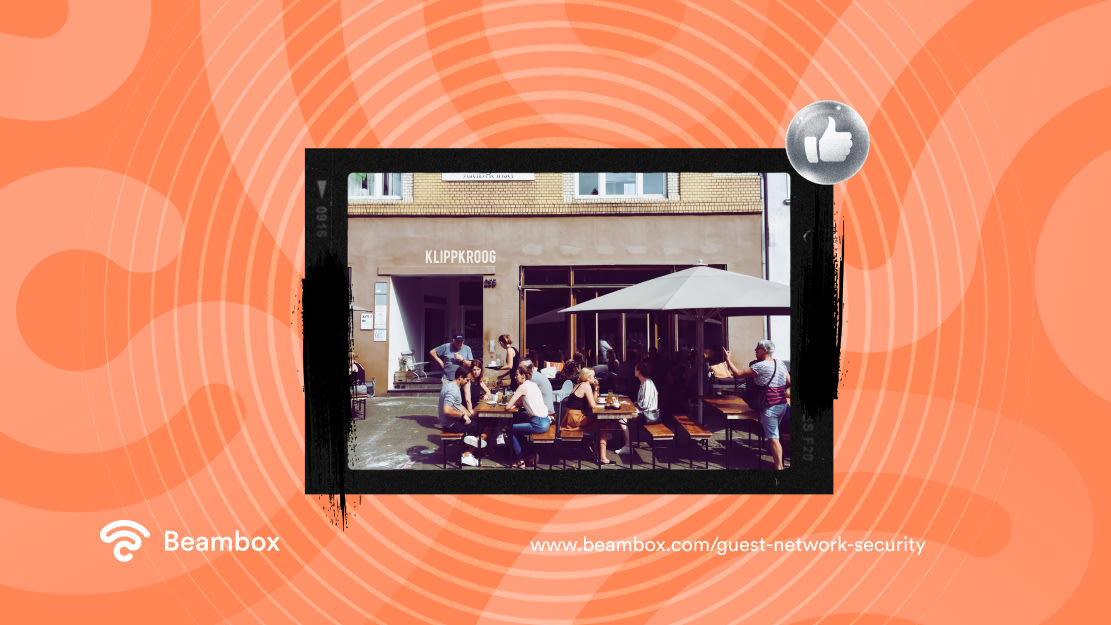
Are Guest Networks Secure?
Guest networks are not always secure; it depends on how you set up your guest WiFi network. If a guest network doesn’t have the proper security measures, it can leave users vulnerable to malicious attacks. For instance, you could receive session hijackers or malware downloads. Business owners have to be proactive in their network security to protect customers.
As a customer, this is out of your hands. So, if you’re approaching this as a user, you must get good at spotting the signs of healthy networks. Are guest networks secure? Well, have a look and see.
From a guest network user perspective, these are positive signs that guest networks are secure:
1. Terms of Use
Having guest WiFi terms of use is a great sign. It shows that specific actions are restricted, and users are held to standards of acceptable behavior. The WiFi network is under monitoring, not just a free-for-all launch of internet connection for multiple users.
2. Captive Portal
A captive portal is fantastic because it shows businesses take who enters (and how they enter) seriously. Captive portals act as a barricade, requesting further details before allowing full internet access. It can also add CAPTCHAs to prove users are human.
3. Great Password
A great password to a primary network isn’t on the back of your router settings. The business owner creates a non-generic password, changing the original password on WiFi installation. You’ll know the difference because it will be a word or phrase, not just a long list of letters and numbers. A strong WiFi password sets a weak guest WiFi network apart from a secure one.
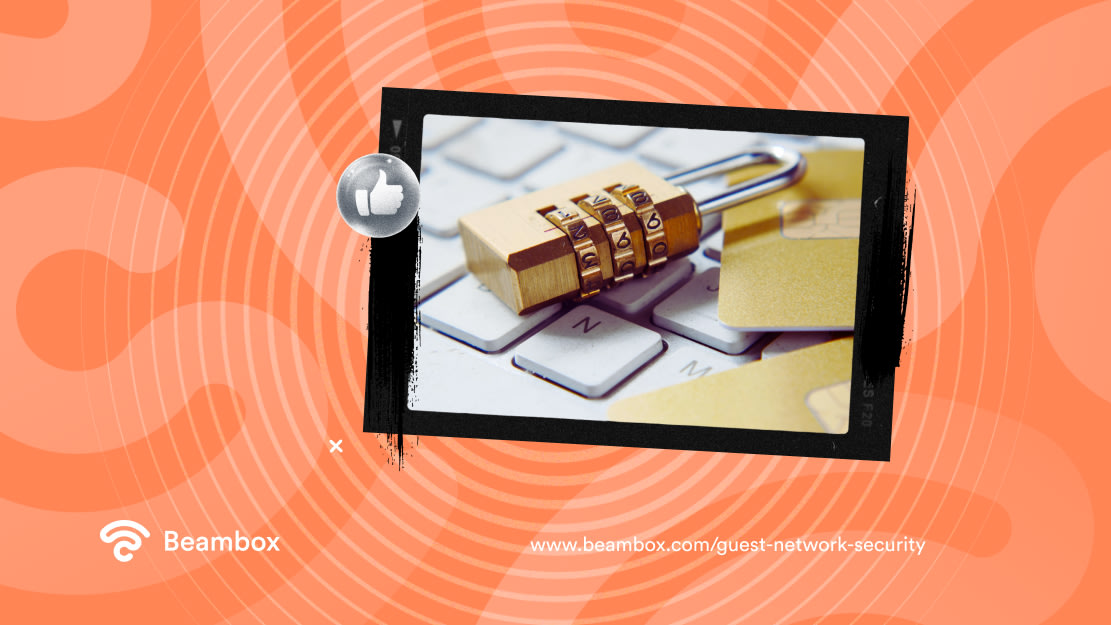
3 Top Guest Network Security Risks
There is always some degree of guest network security risk to watch out for when using businesses’ WiFi. Providing signs of security versus risk guest networks is all well and good. But what are the actual risks? What are you avoiding on risky guest networks?
Whether you are a customer or business owner, it pays to know the top guest network security risks. To understand why you should care, you must understand the risks and repercussions of not caring. Check out these top three risks of insecure guest networks.
1. Fake Private Network
There’s nothing more sneaky than a fake business network. Hackers can set up fake networks to get mobile users to connect and then steal your data. Watch out for suspicious network names. Unless you know the business offering it, anything with the phrase “free WiFi” is suspicious. Be careful of “twin” networks, too, where hackers create an identically named but malicious separate network.
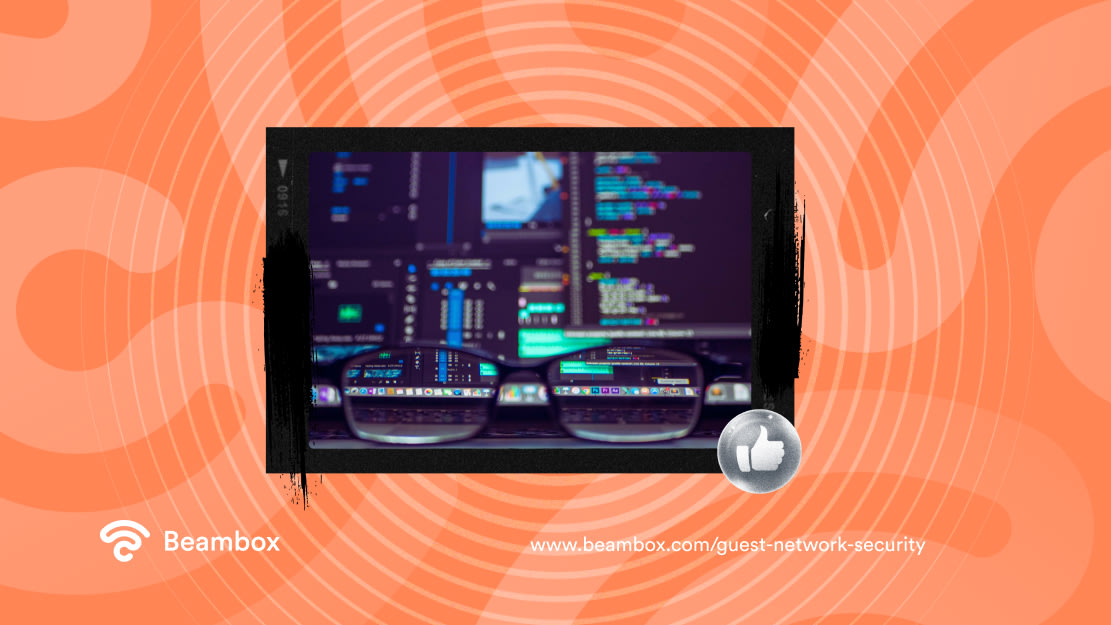
2. You’re at Risk of Session Hijackers
Session hijackers are one of the scariest and most damaging risks while using wireless networks that aren’t secure. These hijackers get access to your smart devices when you join the network. But then they lay dormant, waiting for opportune moments, like when you go to make an online payment. At this stage, you then forfeit your bank details.
3. Router Hackers
If a private network fails to change its default settings, it can be vulnerable to router attacks. The last thing you want is a hacker as an administrator. The whole router can then be a source of corruption and malicious attacks.
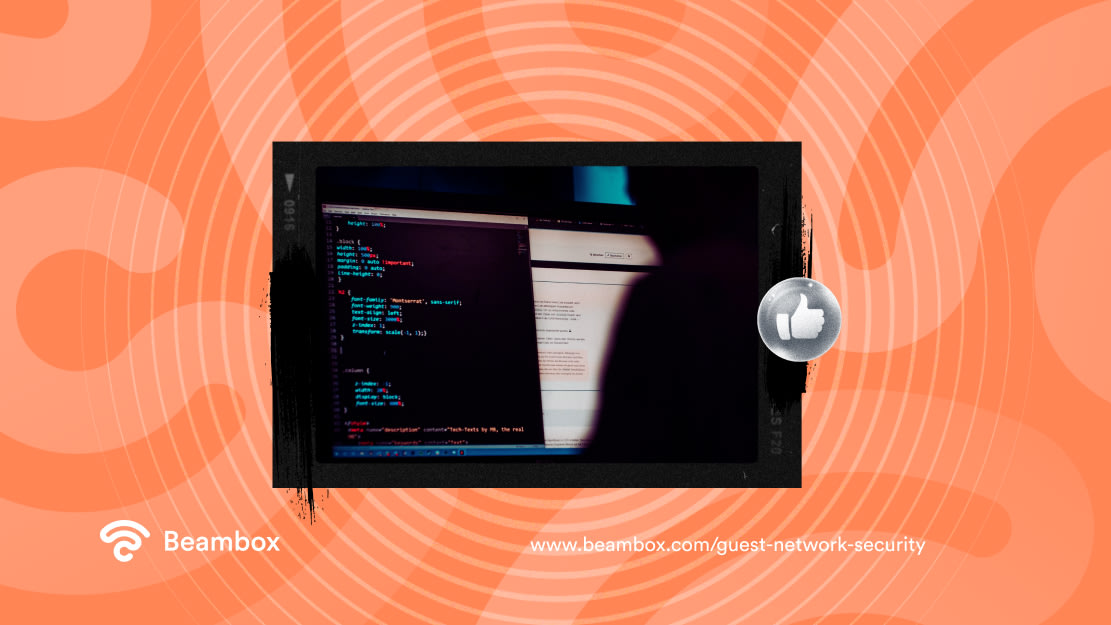
How Do I Secure My Guest Wireless Network?
There are many ways, including changing your WiFi password from the default and being wary of IoT devices like Alexa. For those wondering how to secure my guest wireless network, don’t worry. It is quite simple for business owners to take the necessary security steps to protect their networks.
Whether you run a coffee shop or a retail store, you can take three simple security measures.
1. Change Your Default Details and Have Solid Passwords
Always change default settings. There’s a log of all the default settings available online; no WiFi reliant on defaults is secure. Change your network name and create a brand new, strong password.
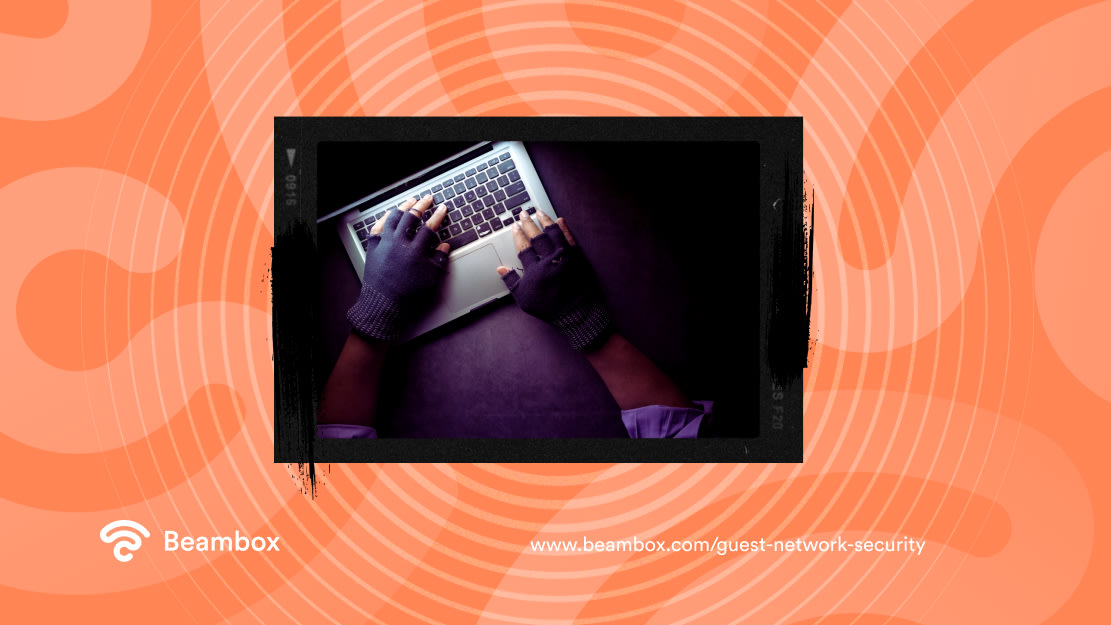
2. Invest in a Captive Portal
Investing in a captive portal adds an extra layer of security and helps with marketing, which we’ll cover below. Security-wise, it creates a barrier to allowing users only under certain conditions. These could include completing a CAPTCHA, adding their email address, or agreeing to terms and conditions.
Using these terms and conditions as a base, you can invest in content filtering and additional security measures. It gives you extra wriggle room to build on your captive portal system.
3. Frequently Check for Malware
Routine malware checks should be standard practice, so make sure you have good anti-malware software. You should remove any malware you find on your router or software. By keeping on top of malware checks, you can help prevent attacks and detect malicious presence as quickly as possible.

How Beambox Works To Strengthen Guest Network Security
Ensuring guest network security is a massive part of creating incredible guest WiFi. At Beambox, we are passionate about strengthening your network security through captive portals. As explained above, captive portals add an extra barrier before allowing users full network access. This brief barrier will enable you to add measures like CAPTCHAs and terms and conditions.
From a security POV, this brief pause for customers gives you more control over your network’s security. And who doesn’t want a secure guest WiFi network for their customers to enjoy for decades to come? Building network security is much like building the foundations of a house. Without network security, your WiFi system could crumble at any time.
Of course, captive portals are also brilliant for WiFi marketing. You can use the pop-up web page to request additional details, like email addresses and phone numbers. With the right software, this information channels into a marketing database. You can add these contacts to email and SMS marketing campaigns, streamlining your marketing strategy.
You can start your Beambox free trial today. Investing in guest network security isn’t something to delay, and with the right software, it’s easy. Protect your customers and invest in your growth and marketing. WiFi management has never been easier.
Get Started With Free WiFi Marketing
Beambox helps businesses like yours grow with data capture, marketing automation and reputation management.
Sign up for 30 days free